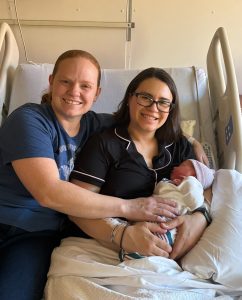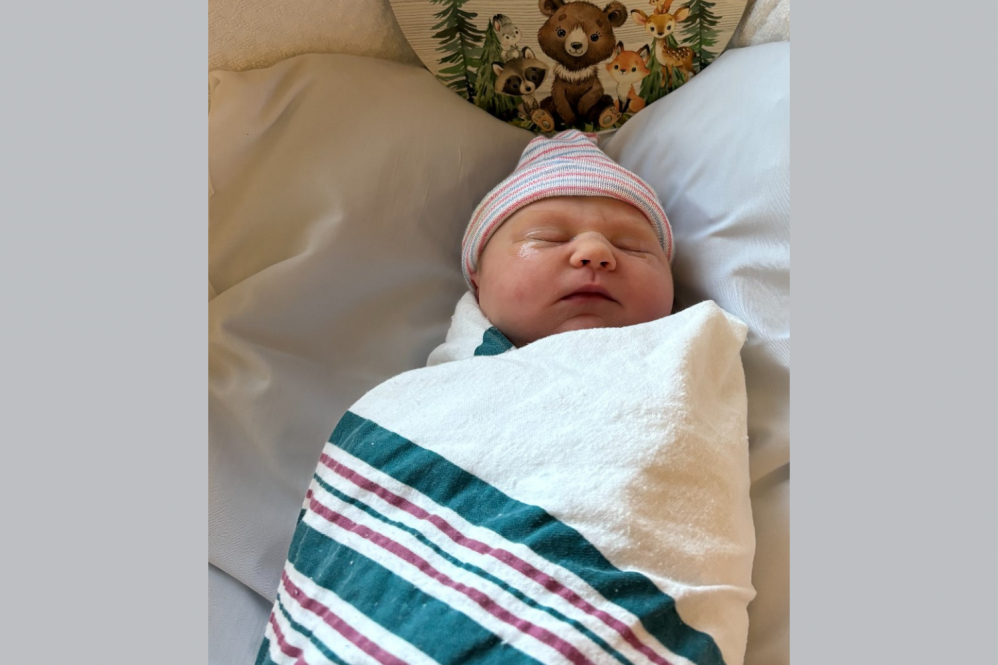The chances of being born in a leap year are 1 in 1,461. Today at UConn Health, four babies joined this small and exclusive group called leaplings.
Lily Bodnar came on her due date and was the first of the leaplings born at UConn Health coming into the world on this rare day at 4:08 a.m. at 7 lbs. 7oz joining her mothers Kelly and Sophia Bodnar of Southington.
Caitlin Custy, Nurse in labor and delivery was there to help deliver Lily and says “its so rare to be delivered on a leap year and these families are excited their babies are born on such a special day, it’s great to be a part of.
 Since Lily’s due date was February 29th, her moms knew today could be her birthday, but were told first babies don’t usually come on their due dates. Kelly was excited about the date from the beginning and thought it was cool to be born on such a rare day. Sophia was ambivalent about the date at first concerned her daughter would only have her birth day every four years, but she’s now thrilled she is here and happy about the day.
Since Lily’s due date was February 29th, her moms knew today could be her birthday, but were told first babies don’t usually come on their due dates. Kelly was excited about the date from the beginning and thought it was cool to be born on such a rare day. Sophia was ambivalent about the date at first concerned her daughter would only have her birth day every four years, but she’s now thrilled she is here and happy about the day.
“In the delivery room there is a lot of anticipation and range of emotions and to see someone become parents for first time or have another baby is indescribable and its just even more special today,” says Custy.
“It’s always a very rewarding experience bringing babies into the world, but today is extra special, it’s like a mini holiday,” says Justus Anderson, nurse, who participated in two of the births today.
“Picking birthdays for babies will be interesting,” says Anderson. We met one father of a leapling and he said they decided on March 1st since that is the day today would have been had it not been a leap year.
Someone born on a Leap Day typically will celebrate their birthday on Feb. 28 or March 1, but Feb. 29 is still used for identification and important documents. Leap Day babies are so rare that they make up less than 0.1% of the world’s population.
Leap years were established as a correction to counter the fact that Earth’s orbit doesn’t exactly fit our 365-day calendar. The calendar accounts for Earth’s imperfect rotation by adding an extra day in February every four years. It is a science developed over millenniums, dating back to the ancient Egyptians.
Approximately 362,900 Americans have a Feb. 29 birthday, according to the Social Security Administration. By comparison, about 1.6 million can say they were born on March 1.



